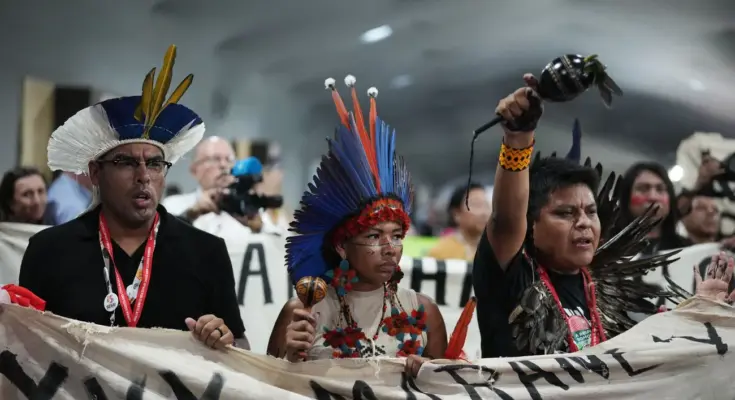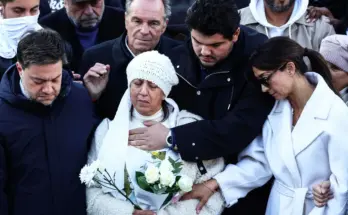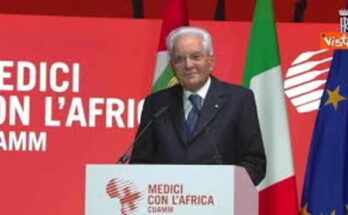Despite an extension of more than 19 hours, the World Climate Conference in Brazil was unable to agree on a binding plan to shift away from oil, coal and gas. In Belém, around 200 countries agreed to a voluntary initiative to accelerate their climate protection efforts.
Oil, coal and gas do not exist
Federal Environment Minister Carsten Schneider (SPD) declared himself “a little disappointed” and said oil-producing countries had prevented more ambitious decisions with a “blockade”. The main final document does not mention fossil energy sources, and oil, coal and gas are not mentioned explicitly – except for the term “greenhouse gases”.
It was decided that rich countries would significantly increase their climate assistance to poor countries to adapt to the impacts of global warming. In particular, there is talk of a tripling in 2035. Financial expert Jan Kowalzig of Oxfam criticized the fact that “there is no base year for a triple hike and no specific amount” has been mentioned. That is likely to be well below the $120 billion per year that developing countries are asking for.
The federal government and its allies cannot win
The federal government, as part of a broad alliance of about 80 states, has campaigned to achieve the more tangible goal of a roadmap to phase out coal, oil and gas, but has been unable to achieve it. The global community decided to move away from fossil fuels at a climate conference in Dubai two years ago – when and how this would happen was not determined in Belem, it was contrary to what was expected.
Nevertheless, Environment Minister Schneider stressed in light of the United States’ withdrawal from the Paris Climate Agreement: “What’s important is for the world to sit down at the negotiating table,” even if the main players are no longer there.
Belly landing for Brazil
For Brazil, the result was a belly landing. At the start of the conference early last week, President Luiz Inácio Lula da Silva said that what was needed was a roadmap that would enable humanity to overcome its dependence on fossil fuels and stop and reverse deforestation. This raised high expectations among many summit participants.
The conference location, chosen symbolically by Brazil on the edge of the Amazon, which is important for the global climate, was frequently used – but the conference did not decide on a concrete “forest action plan” to curb forest destruction. This reminds us of the previous decision to stop deforestation by 2030.
The new fund aims to help preserve rainforests
What the hosts can point to is a new fund to protect the rainforest, with Germany providing one billion euros over ten years. Countries that conserve their forests should be rewarded according to this new model. Instead, they have to pay fines for every hectare of forest destroyed.
The huge city of Belem on the edge of the rainforest posed a challenge for tens of thousands of guests from around the world over the past two weeks – and not just because of a shortage of hotel beds, which was also compounded by cruise ships and private accommodation.
Because the outside world is rarely visible at climate conferences like the one in Brazil: on several occasions the hall-sized tents couldn’t withstand the torrential tropical rain, and water droplets dripped into the hallways. In the final sprint, a fire breaks out for unknown reasons and throws everyone into the street. The COP, as the climate conference is called in UN jargon, is developing, just like the world, activists say.
Indigenous activists stormed the site
Indigenous peoples have stronger representation at the Amazon COP than ever before. Nevertheless, many indigenous groups know how to capitalize on world publicity: one night, a number of indigenous activists invaded the secured territory, and a few days later a group blocked the entrance in the morning – in a struggle for more votes and land rights.
The pressure from outside is in stark contrast to previous climate conferences in authoritarian countries such as Azerbaijan or Egypt. The highlights of the protests in Belém were the multi-day “people’s summit” on the university campus and the massive, colorful rallies attended by tens of thousands of people to further protect the climate.
The 1.5 degree limit has been temporarily exceeded
Rapid action is needed given the worsening climate crisis. Burning oil, gas and coal produces most of the climate-damaging greenhouse gases that cause the earth to warm. The ten hottest years ever recorded were the last ten years.
Science now assumes that the maximum global warming of 1.5 degrees compared to pre-industrial times as set out in the Paris Climate Agreement will be exceeded for at least a limited period of time, by the early 2030s at the latest. The drastic consequence is an increasing number of powerful storms, forest fires, droughts and floods.
© dpa-infocom, dpa:251122-930-327489/2



